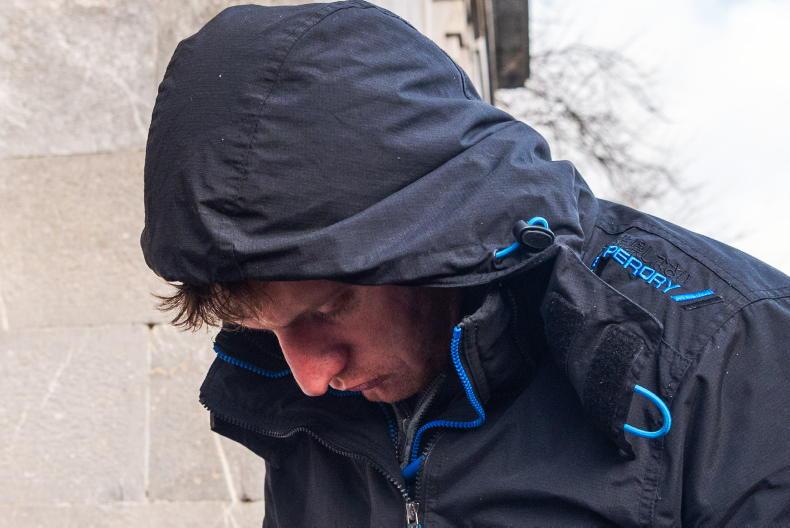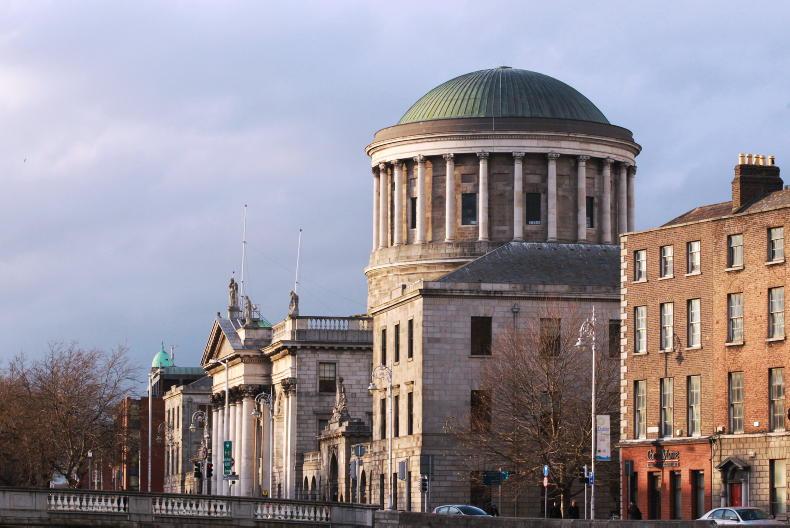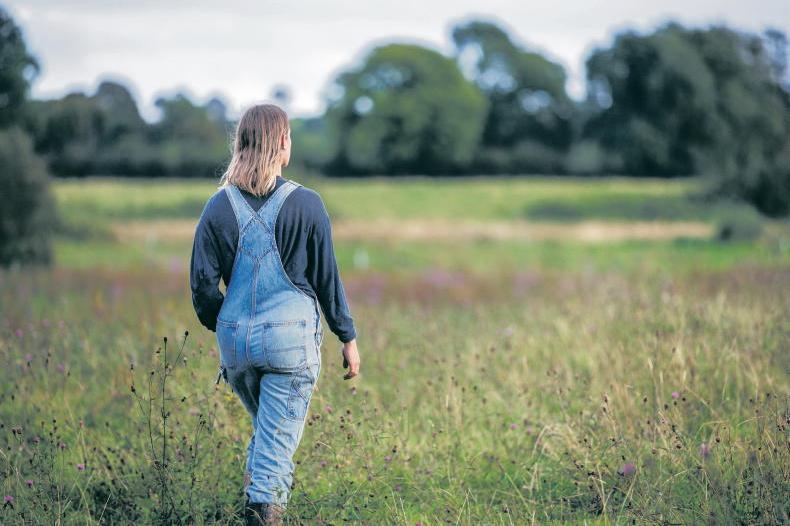“I had been looking after a bachelor farmer neighbour for years as he was living alone. He was grateful for the help and would often say that he would look after me in his will. He died a couple of months ago. However, I haven’t heard anything about a will. How could I find out whether he did leave me something in the will?”
The solicitor who prepared the will normally retains the original will and should be informed of your neighbour’s death by his next of kin.
If it is not known whether your neighbour made a will and with what solicitor, the solicitor with whom your neighbour normally dealt with should be contacted by the deceased’s next of kin to enquire whether he/she holds a will for the deceased.
If the solicitor does not hold a will, he/she can make enquiries with other solicitors as to whether they hold a will for the deceased.
If a will is located, the solicitor would generally contact the executor named in the will to advise him/her that they have been appointed as executor under the will. It is for the executor to administer the estate in accordance with the deceased’s wishes as specified in his will.
The executor can appoint the solicitor who drafted the will to act as solicitor for the estate, or he/she could take the original will from the solicitor who drafted the will and instruct another solicitor. Alternatively, the executor could take out probate himself/herself without the assistance of a solicitor.
Assuming a solicitor is instructed to act in the administration of the estate, generally the solicitor who is dealing with the estate will contact you if you are a beneficiary under the will. Usually, you will get a letter to tell you what the will specified in relation to your inheritance only. At this stage, you are not entitled to a copy of the will, unless the executor gives permission.
Probate Register
The Probate Register Online (www.courts.ie/probate-register-online) which has recently been launched, allows people to search for grants of representation which have been issued in the Republic of Ireland since 1992. The search will only yield a result where a grant of representation has issued in an estate – if the will has not been administered, it is unlikely that the grant of representation has been applied for.
Once the will is lodged in the probate office, it will become a public document that anyone can examine. Anybody can obtain a copy of the grant of probate and/or the will from the local probate office on payment of a fee, either by visiting the office in person or through a postal request.
You can apply to search and/or copy documents by post by completing the form PAS1 (www.courts.ie) and sending the form together with the relevant fee to the relevant District Probate Registry. The online search will enable you to determine the office where the grant issued and, when requesting a copy document, you must apply to the office that issued the grant.
It may be the case that it is not necessary to take out a grant of probate, in which case it would not be available from the probate office. In the case of very small estates, where the proposed beneficiaries are clearly identified, it is occasionally possible for assets comprised in the estate to be released without obtaining a grant of probate. Generally, if the cash assets in the estate are less than €31,750, financial institutions can be persuaded to release monies without a grant. A grant must always be obtained where the deceased possessed realty (eg land) in his/her sole name. However, if the land was held jointly with another person as joint tenants, the deceased’s share would fall to the surviving joint tenant automatically and again a grant would not be necessary
If the will provides that you are to receive a particular item, such as a sum of money or a vehicle, it can generally be taken straight away, assuming that there are no substantial debts to be discharged by the estate.
If you were left a share in whatever is left over, normally referred to as the “residue”, it may not be possible to quantify how much you will receive and when you will receive that until the accounts have been finalised.
A share in the residue
If you are entitled to a share in the residue, you are entitled to receive a letter at the outset from the solicitor dealing with the estate, telling you what the costs of administering the estate will be. Once the estate is administered, you are entitled to receive the executor’s account, which sets out all the sums involved.
The law requires the executor to complete administration “as soon as reasonably practicable” having regard to the nature of the estate and all relevant circumstances. Proceedings cannot be brought by a beneficiary against the executor for his/her failure to distribute an estate until a year after the death of the testator. This is known as the executor’s year. However, a creditor can bring proceedings against an estate at any time.
If an executor fails to act, it is possible for the beneficiaries to issue a citation leading to the executor having to accept or refuse a grant. This cannot be done within 12 months of the death of the testator unless with the consent of the court. So it may be advisable to hold tough for a while longer until a year has passed since your neighbour’s death.
Disclaimer: The information in this article is intended as a general guide only. While every care is taken to ensure accuracy of information contained in this article, Aisling Meehan Agricultural Solicitors does not accept responsibility for errors or omissions howsoever arising.
Read more
Legal Matters: what is my legal standing against the ESB?
Legal Matters: what are your rights with walkers on your land?
“I had been looking after a bachelor farmer neighbour for years as he was living alone. He was grateful for the help and would often say that he would look after me in his will. He died a couple of months ago. However, I haven’t heard anything about a will. How could I find out whether he did leave me something in the will?”
The solicitor who prepared the will normally retains the original will and should be informed of your neighbour’s death by his next of kin.
If it is not known whether your neighbour made a will and with what solicitor, the solicitor with whom your neighbour normally dealt with should be contacted by the deceased’s next of kin to enquire whether he/she holds a will for the deceased.
If the solicitor does not hold a will, he/she can make enquiries with other solicitors as to whether they hold a will for the deceased.
If a will is located, the solicitor would generally contact the executor named in the will to advise him/her that they have been appointed as executor under the will. It is for the executor to administer the estate in accordance with the deceased’s wishes as specified in his will.
The executor can appoint the solicitor who drafted the will to act as solicitor for the estate, or he/she could take the original will from the solicitor who drafted the will and instruct another solicitor. Alternatively, the executor could take out probate himself/herself without the assistance of a solicitor.
Assuming a solicitor is instructed to act in the administration of the estate, generally the solicitor who is dealing with the estate will contact you if you are a beneficiary under the will. Usually, you will get a letter to tell you what the will specified in relation to your inheritance only. At this stage, you are not entitled to a copy of the will, unless the executor gives permission.
Probate Register
The Probate Register Online (www.courts.ie/probate-register-online) which has recently been launched, allows people to search for grants of representation which have been issued in the Republic of Ireland since 1992. The search will only yield a result where a grant of representation has issued in an estate – if the will has not been administered, it is unlikely that the grant of representation has been applied for.
Once the will is lodged in the probate office, it will become a public document that anyone can examine. Anybody can obtain a copy of the grant of probate and/or the will from the local probate office on payment of a fee, either by visiting the office in person or through a postal request.
You can apply to search and/or copy documents by post by completing the form PAS1 (www.courts.ie) and sending the form together with the relevant fee to the relevant District Probate Registry. The online search will enable you to determine the office where the grant issued and, when requesting a copy document, you must apply to the office that issued the grant.
It may be the case that it is not necessary to take out a grant of probate, in which case it would not be available from the probate office. In the case of very small estates, where the proposed beneficiaries are clearly identified, it is occasionally possible for assets comprised in the estate to be released without obtaining a grant of probate. Generally, if the cash assets in the estate are less than €31,750, financial institutions can be persuaded to release monies without a grant. A grant must always be obtained where the deceased possessed realty (eg land) in his/her sole name. However, if the land was held jointly with another person as joint tenants, the deceased’s share would fall to the surviving joint tenant automatically and again a grant would not be necessary
If the will provides that you are to receive a particular item, such as a sum of money or a vehicle, it can generally be taken straight away, assuming that there are no substantial debts to be discharged by the estate.
If you were left a share in whatever is left over, normally referred to as the “residue”, it may not be possible to quantify how much you will receive and when you will receive that until the accounts have been finalised.
A share in the residue
If you are entitled to a share in the residue, you are entitled to receive a letter at the outset from the solicitor dealing with the estate, telling you what the costs of administering the estate will be. Once the estate is administered, you are entitled to receive the executor’s account, which sets out all the sums involved.
The law requires the executor to complete administration “as soon as reasonably practicable” having regard to the nature of the estate and all relevant circumstances. Proceedings cannot be brought by a beneficiary against the executor for his/her failure to distribute an estate until a year after the death of the testator. This is known as the executor’s year. However, a creditor can bring proceedings against an estate at any time.
If an executor fails to act, it is possible for the beneficiaries to issue a citation leading to the executor having to accept or refuse a grant. This cannot be done within 12 months of the death of the testator unless with the consent of the court. So it may be advisable to hold tough for a while longer until a year has passed since your neighbour’s death.
Disclaimer: The information in this article is intended as a general guide only. While every care is taken to ensure accuracy of information contained in this article, Aisling Meehan Agricultural Solicitors does not accept responsibility for errors or omissions howsoever arising.
Read more
Legal Matters: what is my legal standing against the ESB?
Legal Matters: what are your rights with walkers on your land?










SHARING OPTIONS